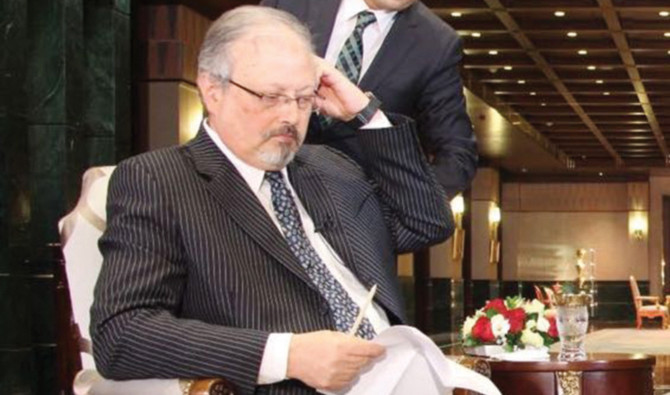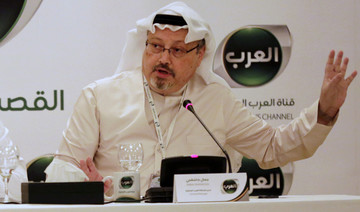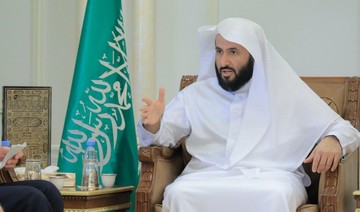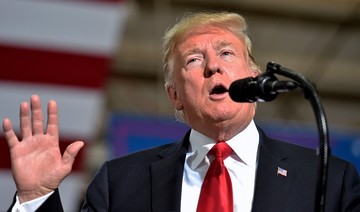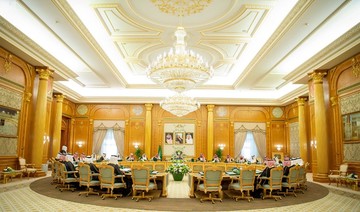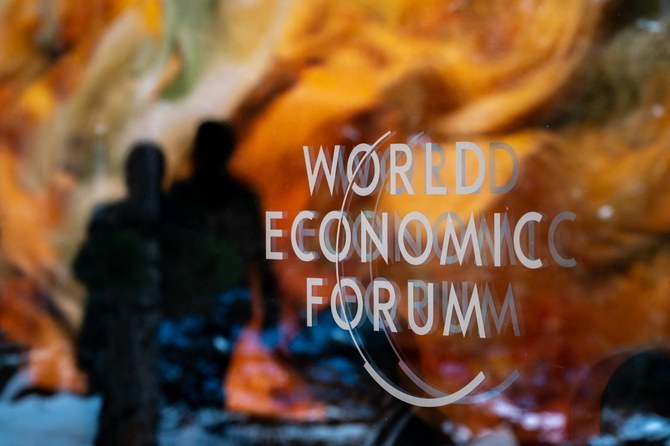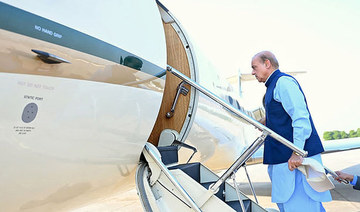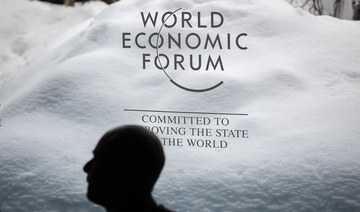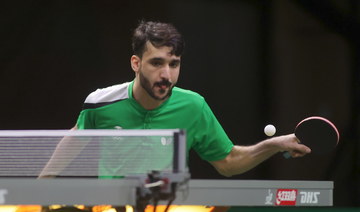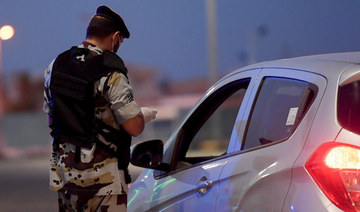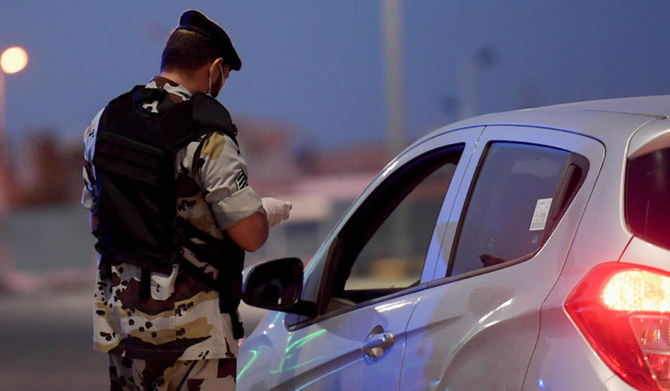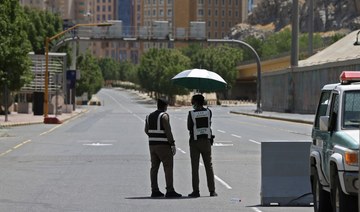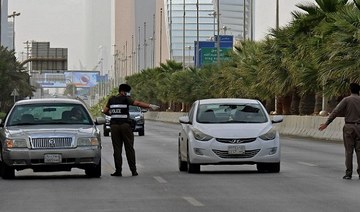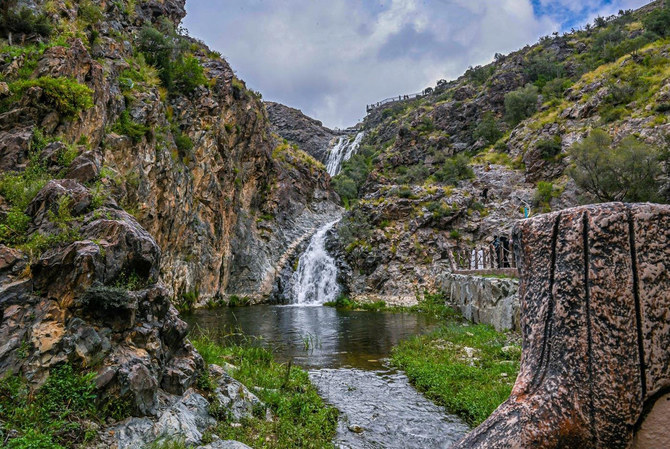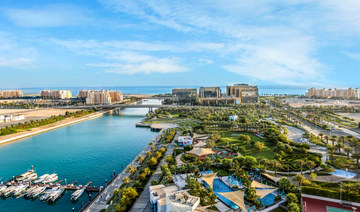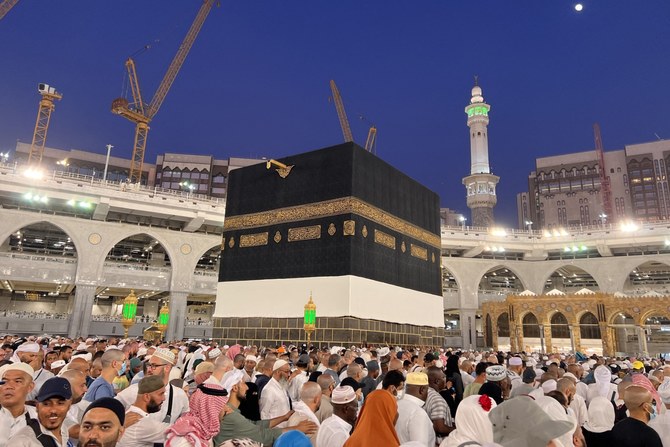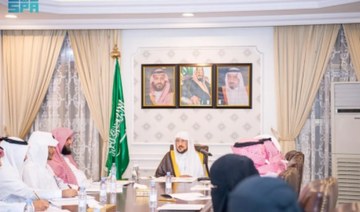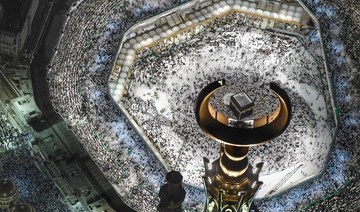'He was the huggable panda' — Khaled Almaeena
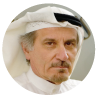 Jamal Khashoggi’s first media job was at Arab News, which he joined in 1985. He had graduated from college in the US. Initially he worked as a reporter on local news, then he was moved to cover other stories, mainly social issues. At first, he wrote in Arabic and his stories were translated and edited.
Jamal Khashoggi’s first media job was at Arab News, which he joined in 1985. He had graduated from college in the US. Initially he worked as a reporter on local news, then he was moved to cover other stories, mainly social issues. At first, he wrote in Arabic and his stories were translated and edited.
He was always amiable and pleasant to deal with; he always had a smile and came to work on time. I remember him discussing things with his colleagues and telling them about the life he had enjoyed in the US. The Khashoggis are from Madinah, and I knew many of his cousins as well as the family elders.
The paper sent Jamal to cover the Afghan war. I am very pained to note that some media reported that he had joined the resistance or Al-Qaeda, or was close to certain infamous people. That is totally wrong. He wore Afghan clothes but everybody did that, even American reporters.
It is improper for anyone to accuse Jamal of being a political ideologue. Of course, at that time our sympathies were with Afghanistan because it had been occupied by the Soviets, who were committing atrocities all over the country. But that did not mean that we sided with Al-Qaeda’s ideology. The Taliban did not exist at that time.
Jamal continued to do his job as a journalist. He returned from Afghanistan to his desk job, which he did until the invasion of Kuwait. At that time, I moved my office from Jeddah to Dhahran and Dammam, and took a number of Arab News staff with me, including Jamal.
We were one of the first groups to enter liberated Kuwait. We sneaked in with the US Army, and I remember that Jamal was not afraid. He seemed to be everywhere, walking through minefields and doing various jobs.
Jamal left Arab News, and in 1993 I did too. I returned to the paper in March 1998. After a while, I asked Jamal to return as my deputy, which he did. He often talked about Afghanistan, where he had met, known and made friends with many different people. Whenever there was a representative from Afghan peace talks under the umbrella of the Organization of Islamic Cooperation (OIC) or Saudi Arabia, Jamal was there to cover and write the stories.
In 2001, he began to probe extremist tendencies among segments of Muslim populations worldwide; he became very interested in that phenomenon. Jamal was never an ideologue. He was interested in the news, its source, and why, where and how it happened. Soon after he went to Algeria and then Tunisia, where he also met all kinds of people.
In 2003, he left Arab News to work at Al-Watan. His first stint lasted only 57 days. We used to read his work regularly. Jamal and I sometimes enjoyed shisha together at Nakheel Restaurant on the Jeddah Corniche, where everything was discussed. At times I found him withdrawn, while at other times I found him bubbling with enthusiasm.
He and I often traveled together with King Abdullah because Jamal was now my counterpart at Al-Watan. We enjoyed a good cigar. He was an avid moviegoer. He was always kind and enjoyed a good joke. He reminded me of a large teddy bear. Before he lost weight, I used to joke with him: “You are the huggable panda.”
I am very sad to hear that he is gone. I pray to God that his family will be able to bear this great loss. He was a good man. Goodbye, dear gentle giant.
• Khaled Almaeena was editor in chief of Arab News from May 1, 1982, until Feb. 20, 1993, and then from March 1, 1998, until Oct. 8, 2011.
Twitter: @KhaledAlmaeena
* * * * * *
‘He was passionate about Saudi Arabia’ — Abeer Mishkhas
 I worked with Jamal Khashoggi when he became deputy editor of Arab News. He had a calming presence, was passionate about Saudi Arabia, and had a very professional view of how the media should address global changes after 9/11.
I worked with Jamal Khashoggi when he became deputy editor of Arab News. He had a calming presence, was passionate about Saudi Arabia, and had a very professional view of how the media should address global changes after 9/11.
I remember a meeting he had with some of the paper’s reporters and writers. We were discussing how to portray Saudi Arabia as we knew it, to counteract negative stereotypes in the Western media. Jamal suggested that I write my first op-ed. That was the moment I found my voice as a Saudi writer. It was his support and confidence in my abilities that moved me in the right direction.
It is very hard to talk about him in the past tense, but we should take solace in the fact that he touched everyone who had the good fortune to work with him.
• Abeer Mishkhas, formerly features editor at Arab News, is features editor at Asharq Al-Awsat.
* * * * * *
‘He was very polite, very supportive’ — Maha Akeel
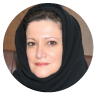 I first met Jamal Khashoggi, God rest his soul, when I joined Arab News in 2004. He was deputy editor at the time. He was softly spoken, polite, intelligent and supportive. Whenever I sought his assistance or opinion for a story I was working on, he was always helpful.
I first met Jamal Khashoggi, God rest his soul, when I joined Arab News in 2004. He was deputy editor at the time. He was softly spoken, polite, intelligent and supportive. Whenever I sought his assistance or opinion for a story I was working on, he was always helpful.
Jamal left Arab News shortly after, as did I a few years later, but I continued running into him, especially when he was editor in chief of Al-Watan newspaper.
He was a fine writer and journalist. I remember seeing him with his wife at a municipality meeting to raise awareness about women’s rights and participation in the upcoming elections at that time. He was supportive of decisions taken to empower women. I pray for his family during these difficult times.
• Maha Akeel is a Saudi journalist who started her career at Arab News in 2004.
* * * * * *
‘He always loved a good story’ — Siraj Wahab
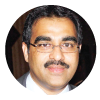 Jamal Khashoggi loved a good story. He was a quintessential newsman who not only liked his story but also liked ferreting out what lay behind it. He was passionate about journalism and in the years that I worked with him, I found him to be extremely principled where the profession of journalism was concerned.
Jamal Khashoggi loved a good story. He was a quintessential newsman who not only liked his story but also liked ferreting out what lay behind it. He was passionate about journalism and in the years that I worked with him, I found him to be extremely principled where the profession of journalism was concerned.
With him in the newsroom, we never felt the stress of a high-pressure job. Even if something went wrong, he always defended his team the morning after. He helped us absorb the shocks which inevitably come to all those in the newspaper business. He often shared his deep insights into the region and beyond with us in the newsroom. There was great bonhomie and a sense of camaraderie between him and Khaled Almaeena. The two were, at that time, the heavyweights of Saudi English journalism and both were sought after by the international media who frequented our newspaper. He was a man of cheerful disposition. Always smiling. Always encouraging. Always lifting our morale.
At Arab News, we all worked as a team with the aim of producing an outstanding newspaper for a very diverse readership. “I am proud and happy to have once been with Arab News,” he wrote in 2010. So too were we, very proud of our association with him.
He was very helpful to his staff. When, for example, I applied for the Alfred Friendly Press Fellowship in the US, he was one of two top Saudi editors who wrote a ringing endorsement for me. The other was Ustaz Khaled. Ustaz Jamal and I remained in touch long after he left Arab News. He was very generous with both information and quotes; rarely did an inquiry come to him that he did not respond to, regardless of what it was. Thus his quotes in addition to information from him often appeared in our stories. It is very hard for me to believe that all that is a thing of the past and that he is no more.
• Siraj Wahab is managing editor at Arab News. He joined the newspaper in 1997. Twitter: @sirajwahab
* * * * * *
'He was a devoted father' — Rasheed Abou-Alsamh
 The earliest memories I have of Jamal Khashoggi are from the late 1980s. I had just started working at Arab News as an editor, and Jamal was an ambitious reporter for Al-Muslimoon, a weekly newspaper on Muslim affairs and our sister publication.
The earliest memories I have of Jamal Khashoggi are from the late 1980s. I had just started working at Arab News as an editor, and Jamal was an ambitious reporter for Al-Muslimoon, a weekly newspaper on Muslim affairs and our sister publication.
He used to rush up to our newsroom on the third floor, waving the latest story that he had written after returning from another reporting trip to Afghanistan, where he covered the conflict between the mujahideen and Soviet troops who had invaded and occupied the country.
He would regale us with stories of his adventures and describe what it was like interviewing Osama bin Laden, who was leading a group of Saudi fighters. This was long before 9/11, and bin Laden was not yet on the most-wanted-terrorist list.
Many years later, Jamal returned to work at Arab News as deputy editor. He was a calm boss, and would listen intently to our arguments for and against running a certain story. He never yelled at anyone and was liked by all. Jamal, like all true journalists, loved being in a newsroom. The electricity of breaking news was adrenaline to him. After he left Arab News, he twice became editor-in-chief of Al-Watan newspaper.
Jamal always had a twinkle in his eye, and he loved to laugh heartily at a good joke. He was a devoted father. I remember him telling me years ago that he was worried about his son’s higher education. Jamal will be missed by all his former colleagues at Arab News. May his soul rest in peace.
• Rasheed Abou-Alsamh is a Saudi-American journalist based in Brasilia, Brazil. He worked as an editor and columnist at Arab News from 1988 to 2007.



